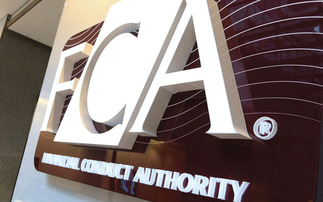Following The Solicitors Regulation Authority's announcement that it will launch a consultation into adviser referrals, one adviser letter to the body urges it to carefully consider the case for restricted advice.
The SRA's consultation, due on July 4, will look at the definition of independence and what type of adviser solicitors will be able to refer client to. Solicitors currently only refer to independent advisers.
The letter from Wingate Chartered Financial Planner Alistair Cunningham, which was sent today, aims to make the case for some types of restricted advice.
It states that many representations made to the board of the SRA suggest that firms will either be 'independent or restricted and argues that this is an 'over-simplification'.
It argues that specialising in a specific area of advice can lead to equally good consumer outcomes as whole of market advice and yet the first set of circumstances would qualify as restricted advice.
The letter describes the sort of 'restricted' advice that should be considered as equal to independent advice:
[advice that considers] "all available options but within a narrow range of 'retail investment products', and/or [advice that] offers a limited range of options from all areas of 'retail investment products'".
The letter says: "It seems clear that by specialising in a specific area of advice (for example retirement or care-fee planning) good consumer outcomes are no more difficult, or less likely, to be achieved in the restricted (products) area. They may however be less likely, or more difficult, to achieve in the restricted (provider) area."
"The simplification that 'independence is best', is in our opinion, an unfair and unbalanced opinion which is potentially misleading. We note that many of our peers and high profile professional bodies seem to represent a far narrower view.
"We would propose that any external firm to whom a legal practice makes introductions should be subject to robust due diligence, of which 'independence' (or otherwise) should only be one criteria."
The letter gives a series of considerations that it argues the SRA should make when referring to advisers.
- The specialist areas of advice (or otherwise) of both the firm and the relevant fee-earner dealing with the enquiry
- Level of qualification and experience, particularly with regard to more complex areas, for example Court of Protection or divorce work
- Complaints history, PI claims, risk management procedures
- Professional body memberships, awards and third party practice management accreditations (such as the ISO22222)
It continues: "There will be examples of poor advice and detrimental client outcomes from both independent and restricted advisers and to mitigate these risks, legal practices should introduce a due diligence process for firms they introduce to their clients.
"The process should reflect their own requirements and ultimately demonstrate their criteria for working with other professional firms which will protect and enhance the firm's reputation and reduce the risk of complaints.
The SRA is set to meet on 4 July to discuss the Financial Services Authority's (FSA) definition of independence for its own criteria and will be launching a 12 week consultation following the meeting.
Cunningham said of Wingate's status as an independent firm: "We thought for a long time that we would have to become restricted, but recent guidance on independence makes retaining this status appears less onerous than it at first seemed. We can probably retain this status."














